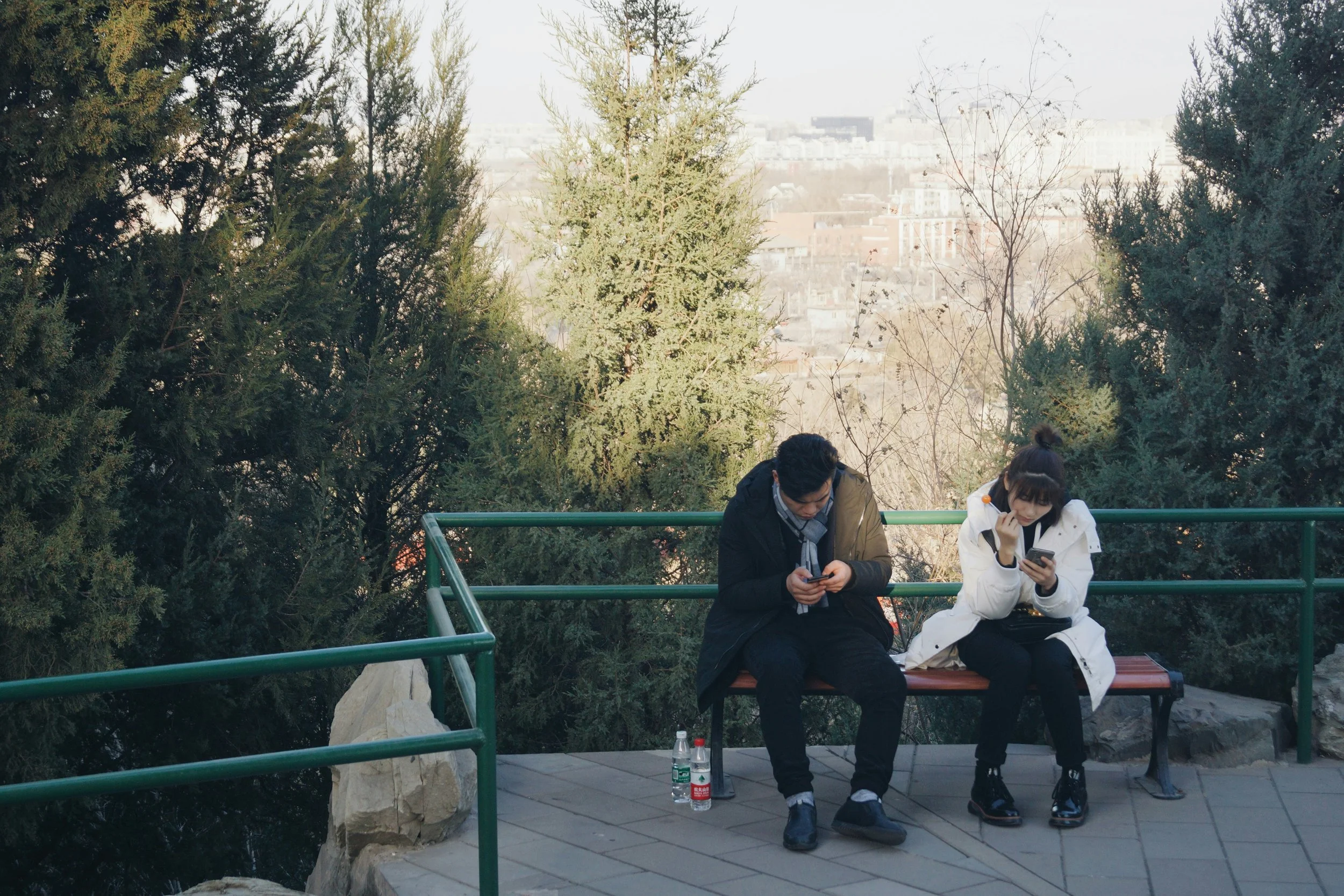5 Ways to Emotionally Prepare for the Holidays
My professor made a poignant remark during the days leading up to the fall and winter holidays that had the entire class laughing at the accuracy and relatability of the observation. He shared that the holidays are a humbling time for personal growth because you can think you have worked through and resolved most of your triggers in therapy until that first fall holiday family get-together.
Suppose you are an adult who has started your own life outside of your family of origin. Family of origin is the nuclear family environment from your childhood. In that case, you may only sometimes see your family of origin and extended family members throughout the year. Reasons for this may include moving farther away, busyness with work, partner and childrearing obligations, or a personal choice to spend less time together and live a primarily separate life from your roots. The fall or winter holiday family get-together may be the first time you have seen your family of origin and extended family all year. If you have been living your independent life, you may live under your current value system and lifestyle, which probably contrasts with your family of origin. You could go all year without being physically confronted with unresolved issues in your family. Until that family holiday, you may confidently move about your days with ease and feel like you are an evolved, different, and healed person.
Three hundred days of evolution can feel squashed in a matter of minutes upon walking into your family home and being inundated with the energy, opinions, behaviors, unresolved grudges and disputes, and even familiar sounds and smells of your family of origin and extended family. Let's say your mom says something that differs from your current value system, and you are suddenly triggered and transformed into the teenager that constantly protests your parents' differing viewpoint. The night goes on, and you get triggered frequently by things that seem to come crashing down on you out of the sky, like someone dropping water balloons at you. After not being surrounded by this energy and environment for a year, you notice that you are emotionally drained and out of balance after a few hours and haven't even gotten to dessert.
How can you emotionally prepare yourself for this humbling experience and not get sucked back into the old dynamics?
1. Make a list of your boundary no-nos ahead of time and rehearse how you will address those boundaries if they arise. Let's say that in years past, your uncle has brought up politics that differ from your value system. I use this as an example because who doesn’t have a family member that differs politically from us? Let’s say he has been unwilling to hear your perspective, which has only led to your cheeks burning with frustration as you experience a familiar activation. You can write on your list as a boundary no-no that you will not engage in a conversation about politics with your uncle. Then imagine your uncle bringing something accusatory up, "How can you think…." You can then practice stating your boundary aloud, "Uncle P, I am not going to engage in this conversation." Nothing more needs to be said on that topic. Imagine yourself changing the subject, walking away, or talking to someone else if he tries to keep talking about politics.
2. Decide ahead of time how much you will drink. Alcohol can temporarily numb your nervousness, discomfort, triggers, and awkwardness of the situation. However, too much alcohol can lead to adverse consequences, such as talking about something on your boundary no-nos or behaving in a way that is inconsistent with how you typically act in your everyday life. Let's say you usually have two glasses of wine on Saturdays and know that this is your sweet spot of relaxation where you still have a filter. Then, plan to stick to two glasses of wine at the family gathering, even if the family offers you more. Instead of having more wine, you can count equal inhales and exhales for a count of four, have a cup of tea and honey, apply a travel-sized lavender roll-on oil on your wrist, or excuse yourself to find a quiet place to practice meditation.
3. Practice a loving-kindness meditation for two weeks leading up to a family gathering. If you do not have a guided meditation yet, there is an excellent resource on Netflix called Headspace Guide to Meditation. Episode 5: How to Be Kind, which includes a story and a guided loving-kindness meditation. The practice is to envision yourself in a comfortable and relaxed spot and to envision sunlight from the center of your body spreading throughout your body. You then imagine someone you care about in their happy place, and finally, someone who you have a problematic relationship with in their happy place. In the episode, they describe how research has found that practicing a loving-kindness meditation consistently for a couple of weeks led to people being kinder to themselves and more compassionate towards others. The practice can allow you to take that moment of pause before reacting to a trigger and instead have more patience and compassion for yourself and the family member that triggered you.
4. Decide how long you want to stay at a family gathering and if you want to get separate accommodations. Family may pressure you to stay at their house to get the most minutes possible together. Sometimes, quality time is more important than quantity time. If last year, six days at the family home mentally, emotionally, and physically felt like six months and left you exhausted and at your wit's end, then perhaps you can make a different choice this year. Maybe this year, you can make a self-honoring decision to stay at a nearby short-term house rental or hotel. If your budget is limited, plan and set some money aside for the accommodations. There is tremendous value in preserving your mental and emotional health by recharging and having your own space during the family holiday. It can be tempting to prioritize saving money over your mental health. Consider, however, that you can potentially earn more money in the long run by preventing emotional, mental, and physical burnout upon returning to your job and saving money on products and services to recover from the burnout. Imagine how lovely it could be to go to your families for meals and activities and then return to your separate sanctuary to unwind and recharge.
5. Talk to your therapist about past unresolved family triggers that may come up that are unresolved for you or have come up before at holiday functions. As my professor mentioned, we can start to get quite confident about being resolved of issues and evolving in our consciousness until we get together with our families. In addition to processing with your therapist after the holiday battle fest of 2022, you can spend time in your sessions exploring unresolved issues from childhood or triggering experiences that occurred last holiday that you tried to squash and forget. Emotional preparation includes recalling common unresolved triggers and becoming aware of how they have affected your body, mind, and emotions in the past. You can work with your therapist to process and heal from those triggers. While you may not fully process and recover from those triggers before the holidays, you can anticipate how to take care of yourself if those triggers should arise during a family function.
Feeling like you could use an ally by your side as you approach the year-end holidays? Contact our Client Care Coordinator today to set up a session with a therapist. Together you can explore some of your family triggers, and come up with a mental health game plan for the holidays.
Warmly,
Root to Rise Therapy







